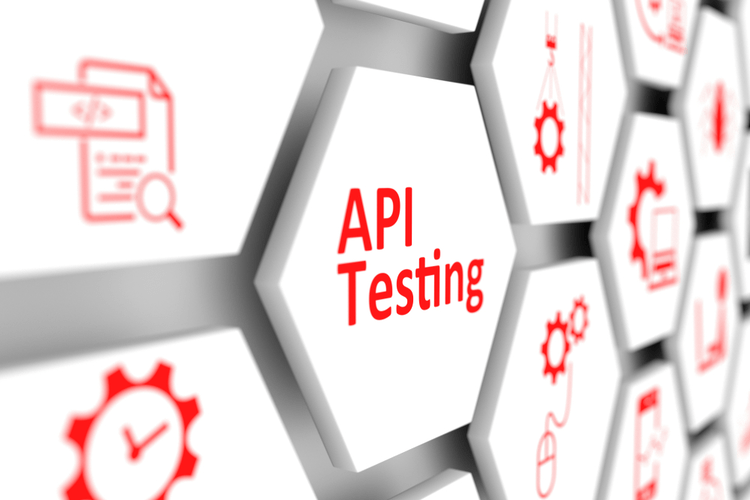One common approach is to use an Agile methodology, which involves breaking down the implementation into smaller sprints or phases. To see our product designed specifically for your country, please visit the United States site. Two types of CRMs people in any business or tech field should be familiar with are analytical and operational CRMs.
- It implemented a system that integrated its thousands of applications, standardized processes, and restructured warehouse management systems—breaking down silos for seamless, integrated coordination of work.
- As their customer base grows, new customers are added daily, and their account teams have to manually sort through these new customers and link them to the proper parent entity.
- Kosta Belz is a Senior Applied Scientist with AWS MLSL with focus on Generative AI and document processing.
- Machine learning algorithms and machine vision are a critical component of self-driving cars, helping them navigate the roads safely.
- Moreover, with the rise of digitization and automation, enterprise systems are becoming more critical as they help companies streamline their operations and stay ahead of the competition.
New challenges include adapting legacy infrastructure to machine learning systems, mitigating ML bias and figuring out how to best use these awesome new powers of AI to generate profits for enterprises, in spite of the costs. This part of the process is known as operationalizing the model and is typically handled collaboratively by data science and machine learning engineers. Continually measure the model for performance, develop a benchmark against which to measure future iterations of the model and iterate to improve overall performance. The type of algorithm data scientists choose depends on the nature of the data.
What are Enterprise Software Systems?
The ERP landscape has shifted with the rapid evolution of software as a service (SaaS) cloud applications. Because of the mobile platforms and decentralized workforce–work anywhere and anytime–ERP systems can no longer be tied to yesterday’s on-premises back-office applications. The next-generation, cloud-based, and modern ERP solutions support the new industry dynamics while providing the ability to reduce support time to enable organizations to respond quickly to volatile markets and industry trends. How can these solutions manage organizations day-to-day business activities, such as accounting, finance, procurement, project management, supply chain, and manufacturing.

It helps managers better understand how efficient their work is, and adjust it accordingly. The supply chain management (SCM) system is software that helps streamline all these processes. It makes the routine work of suppliers, manufacturers, logistics managers and retailers easier. For all the parties, it helps in tracking and communicating with each other, establishing better procedures and delivering ready-made products to the customer more quickly.
Readily adopt new and evolving SaaS technologies
When ERP software is delivered as a service in the cloud, it runs on a network of remote servers instead of inside a company’s server room. The cloud provider patches, manages, and updates the software several times a year—rather than an expensive upgrade every 5 to 10 years with an on-premises system. The cloud can reduce both operational expenses (OpEx) and capital expenses (CapEx) because it eliminates the need for companies to purchase software and hardware, or hire additional IT staff.
A 2018 study by Allied Market Research predicts the global cloud-based ERP market will top $32 million by 2023, with software and professional services as the most significant growing segments. North America is considered the highest adopter of cloud-based ERP, although the Asia-Pacific region is expected to grow at a high rate too. Cadbury, a global confectioner and maker of the popular chocolate Cadbury egg, also successfully implemented an ERP system.
Customer Relationship Management (CRM)
Which ones are the main applications depends on the business and the industry it operates in. Most companies can benefit from supply chain management, logistics, and financial applications to help them streamline their operations and expenses. Oracle Corp. (ORCL) originally supplied a relational database that integrated with ERP software developed by SAP (SAP) before entering the broader enterprise market in a big way in the early 2000s. Microsoft (MSFT) has long been an industry leader, with many customers using multiple software applications from the company. ERP has evolved over the years from traditional software models that made use of physical client servers and manual entry systems to cloud-based software with remote, web-based access. The platform is generally maintained by the company that created it, with client companies renting services provided by the platform.

Enterprise systems offer a wide range of benefits to businesses that adopt them. One of the most significant advantages is enhanced productivity and efficiency due to streamlined processes. With enterprise systems, data management becomes more efficient as all information is integrated into one system, eliminating inconsistencies in data entry across different departments. Men’s grooming product maker Fulton & Roark successfully implemented enterprise resource planning to better track inventory and financial data. Like many other businesses, the North Carolina company used spreadsheets to track inventory and accounting software to record financial data.
Key Features – 30%
ERP also integrates with front-office applications to build holistic views of customers, including customer relationship management (CRM) solutions. Additionally, cloud-based ERP applications are often embedded with next-generation technologies, such as the internet of things (IoT), blockchain, AI, machine learning, and digital assistants. These advanced technologies deliver data and capabilities that not only enhance many traditional ERP functions; they create new opportunities for increased efficiencies, new services, and deeper insight across an enterprise.

Additionally, as all the data is stored, shared, accessed through a single system, there is no concern about how accurate, complete, or secure the data files are. CTO and engineer with 20 years of development experience shares insights and tips for successful cloud migration. Helps in consolidating data from different departments, offering a unified, consistent view of business information. Helps in managing supplier relationships more effectively, ensuring timely delivery and quality of products. Facilitates demand forecasting, helping to optimize inventory levels and reduce carrying costs.
Improve Supply Chain Management
These management systems facilitate integrated partnerships amongst all the goods, services, and customers points. While machine learning is a powerful tool for solving problems, improving business operations and automating mariadb development tasks, it’s also a complex and challenging technology, requiring deep expertise and significant resources. Choosing the right algorithm for a task calls for a strong grasp of mathematics and statistics.
It allows for the project management office to manage all company-wide projects with ease, as well. If someone is talking about enterprise management systems, you can be sure that they’re talking big business. Businesses employ enterprise resource planning (ERP) for various reasons, such as expanding, reducing costs, and improving operations.
Machine learning applications for enterprises
His research interests are multimodal machine learning, generative AI, and ML applications in healthcare. With a consolidated database as its foundation, ERP systems can be built out to accomplish a seemingly limitless variety of management and tracking functions. Doing so still requires technical know-how from a third-party ERP system provider or experienced internal staff, but it’s much, much easier for the company at large than the siloed management software systems of the past. Katana Manufacturing ERP is the ultimate solution for manufacturing companies. From a hardware point of view, enterprise systems are the servers, storage and related programming software that large organizations use as the establishment for their IT infrastructure. These frameworks are intended to oversee extensive volumes of critical information.
The Enterprise Systems That Companies Need to Create
Ben has a passion for blending design and writing into a cohesive product narrative. An advocate for research, strategy, and discovery at the front end of any project, Ben excels in high-level thinking about how to most effectively tell a brand’s story in an authentic and relevant way. With automation, rapid, scalable development is possible for a wider range of companies. Nowadays, a variety of ERP software offered by different software vendors is available in the market. Wiley University Services maintains this website on behalf of The University of Scranton.
What are Enterprise Management Systems Usually Used For?
It allows enterprises to gradually implement key modules one at a time, that gains the ability to change certain areas without disrupting overall operations. However, it is important the modules are compatible with each other and easily integrated with the existing solutions, if any. Corporations require them to collect, process, and interpret a vast amount of data, tying together lots of business processes and enabling the flow of data between units to run operations efficiently. Businesses that use enterprise management systems are normally spread very far geographically.
